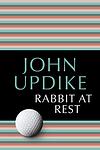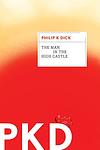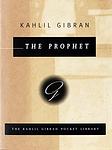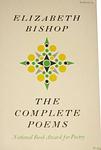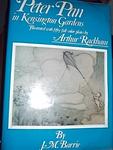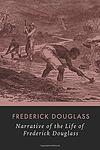The Greatest Books of All Time
Click to learn how this list is calculated.
This list represents a comprehensive and trusted collection of the greatest books. Developed through a specialized algorithm, it brings together 291 'best of' book lists to form a definitive guide to the world's most acclaimed books. For those interested in how these books are chosen, additional details can be found on the rankings page.
Genres
Countries
Date Range
Reading Statistics
Click the button below to see how many of these books you've read!
Download
If you're interested in downloading this list as a CSV file for use in a spreadsheet application, you can easily do so by clicking the button below. Please note that to ensure a manageable file size and faster download, the CSV will include details for only the first 500 books.
Download-
501. On Liberty by John Stuart Mill
This influential philosophical work explores the concept of personal freedom and societal limits, arguing that individuals should have the right to act as they want, provided they do not harm others. The book elaborates on the nature and limits of the power that can be legitimately exercised by society over the individual, and champions individuality and nonconformity. It also discusses freedom of speech, asserting that all opinions should be openly expressed to prevent any single viewpoint from becoming dogma.
-
502. Rabbit at Rest by John Updike
The novel is a final look into the life of Harry "Rabbit" Angstrom, a former high-school basketball star, now in his mid-fifties, overweight and grappling with several health issues. Despite his success in business, his personal life is in shambles, with his wife addicted to alcohol and his son to drugs. Harry, struggling with his mortality, is trying to understand his past and make sense of his future, while dealing with the changing American society and the consequences of his own choices.
-
503. Flowers for Algernon by Daniel Keyes
The book is a poignant science fiction narrative that follows the life of Charlie Gordon, a man with an IQ of 68, who undergoes an experimental surgical procedure intended to increase his intelligence. The story is told through Charlie's progress reports, which initially showcase his limited comprehension and writing ability. As the treatment takes effect, Charlie's intelligence surpasses that of the average person, leading to a dramatic increase in his understanding of the world, relationships, and his own past. However, the transformation is not without its pitfalls, as Charlie grapples with the emotional and social implications of his newfound abilities, and the impermanence of the experiment's success becomes a haunting reality. The novel explores themes of intellect, human dignity, and the ethics of scientific experimentation.
-
504. Wise Blood by Flannery O'Connor
"Wise Blood" is a novel about a young man named Hazel Motes, who returns home to Tennessee after serving in World War II and finds his religious beliefs shaken. He becomes a street preacher, founding the Church Without Christ to preach his message of faithlessness. The book explores themes of redemption, faith, and the struggle between belief and atheism as Hazel interacts with a variety of eccentric characters and faces his own internal battles.
-
505. The Man in the High Castle by Philip K. Dick
Set in an alternate history where the Axis powers won World War II, this novel explores life in a world where the United States is divided into three parts: the Pacific States of America, controlled by Japan; the Rocky Mountain States, a neutral buffer zone; and the United States of America, controlled by Nazi Germany. The story follows several characters, including a jewelry designer, a trade minister, and a German secret agent, as they navigate this dystopian reality. The narrative is further complicated by the existence of a banned novel that depicts an alternate reality where the Allies won the war, causing characters to question their understanding of reality.
-
506. The House of the Seven Gables by Nathaniel Hawthorne
This novel revolves around the cursed Pyncheon family, who live in a gloomy New England mansion, cursed due to the actions of their ancestor who had an innocent man hanged as a witch to seize his property. The story explores themes of guilt, retribution, and atonement, and the narrative is interspersed with the author's philosophical musings. The present-day Pyncheons include an old maid, a daguerreotypist, and their elderly, reclusive cousin who returns to the house after a mysterious absence of many years.
-
507. Sense and Sensibility by Jane Austen
This classic novel explores the lives of the Dashwood sisters, Elinor and Marianne, as they navigate love, heartbreak, and societal expectations in 18th-century England. The two sisters, one characterized by practicality and restraint (sense) and the other by emotional intensity and romanticism (sensibility), must negotiate their paths through a world where marriage often has more to do with wealth and social status than with love. The story is a sharp critique of the limitations placed on women in a rigidly patriarchal society.
-
508. 2666 by Roberto Bolaño
The novel is a sprawling, ambitious work that spans continents and time periods, centering around an elusive, reclusive German author. It intertwines five different narratives: a group of European academics searching for the author, a professor in Mexico dealing with his own personal crises, a New York reporter sent to cover a boxing match in Mexico, an African-American journalist in Detroit, and the horrifying and unsolved murders of hundreds of women in a Mexican border town. The narratives are linked by themes of violence, mystery, and the search for meaning in a chaotic world.
-
509. The Sheltering Sky by Paul Bowles
"The Sheltering Sky" is a novel about an American couple, Port and Kit Moresby, who travel to the North African desert accompanied by their friend Tunner. The journey, initially an attempt to cure their marital woes, quickly descends into a harrowing journey of self-discovery and exploration of the human condition. As they move further into the desert, the harsh environment and their isolation from the outside world push them to their psychological limits, leading to devastating consequences.
-
510. Melmoth the Wanderer by Charles Robert Maturin
"Melmoth the Wanderer" is a gothic novel that tells the story of John Melmoth, a man who sells his soul to the devil for 150 extra years of life, and spends that time wandering the earth in search of someone who will take over the pact for him. The narrative is a complex series of nested stories, told by many different characters, and it explores themes of guilt, redemption, and the inherent evil of mankind.
-
511. Gormenghast by Mervyn Peake
Set in a vast, crumbling castle named Gormenghast, the story follows the life of Titus Groan, the heir to the Earl of Groan. The narrative explores the complex, rigidly structured society within the castle and the struggles and intrigues of its eccentric characters, particularly the scheming kitchen boy Steerpike. As Titus grows older, he begins to rebel against the stifling traditions of Gormenghast, setting the stage for a dramatic clash between the old and the new.
-
512. Dispatches by Michael Herr
This book is a first-hand account of the Vietnam War from a war correspondent's perspective. The author vividly describes the chaos, violence, and absurdity of the war, providing a raw and unfiltered look at the experiences of soldiers on the ground. The narrative is filled with gritty details and intense imagery, capturing the fear, boredom, and disillusionment that characterized the war. The book is considered a classic of war reportage, lauded for its honest and brutal portrayal of the realities of combat.
-
513. The Prophet by Kahlil Gibran
"The Prophet" is a collection of poetic essays that are philosophical, spiritual, and, above all, inspirational. The central character, a prophet, is about to board a ship which will carry him home after 12 years spent living in a foreign city. Before he departs, he is stopped by a group of people, with whom he discusses topics such as life and the human condition. The book is divided into chapters dealing with love, marriage, children, giving, eating and drinking, work, joy and sorrow, houses, clothes, buying and selling, crime and punishment, laws, freedom, reason and passion, pain, self-knowledge, teaching, friendship, talking, time, good and evil, prayer, pleasure, beauty, religion, and death.
-
514. Lonesome Dove by Larry McMurtry
The book tells the story of two retired Texas Rangers who embark on a perilous cattle drive from Texas to Montana in the 1870s. The narrative focuses on the duo's adventures and the characters they meet along the way, including a variety of outlaws, Indians, and settlers. This epic tale of the Old West explores themes of friendship, unrequited love, and the harsh realities of frontier life.
-
515. Complete Poems by Elizabeth Bishop
"Complete Poems" is a comprehensive collection of works by a renowned poet, showcasing her mastery of language and imagery. The book features a wide range of themes including travel, nature, loss, and human connection. The poet's keen eye for detail, unique perspectives, and her ability to infuse ordinary moments with profound insights, make this collection a compelling exploration of the human experience.
-
516. A Visit From The Goon Squad by Jennifer Egan
"A Visit from the Goon Squad" is an interconnected collection of stories about a group of characters whose lives intersect in the music industry. The narrative spans several decades, tracing the characters' journey from their youth to middle age. It explores themes of time, change, and the impact of technology on human relationships and the music industry. The novel is known for its experimental structure, including a chapter written as a PowerPoint presentation.
-
517. The Devil to Pay in the Backlands by Joao Guimaraes Rosa
"The Devil to Pay in the Backlands" is a complex narrative that follows the life of a Brazilian sertanejo (backlands dweller) who becomes a bandit and a feared killer. Tormented by his violent actions, he embarks on a metaphysical journey, wrestling with philosophical and religious questions, and trying to reconcile his deep belief in fate and predestination with his own free will. The book is notable for its innovative language, blending regional dialects with neologisms and classical references, which adds to its rich portrayal of the Brazilian backlands.
-
518. The Pillars Of The Earth by Ken Follett
Set in the 12th century, the novel is a sweeping epic of good and evil, treachery and intrigue, violence and beauty. It revolves around the construction of a cathedral in the fictional town of Kingsbridge, England. The story is centered on the lives of three main characters: a master builder, a monk, and a noblewoman, whose destinies are intertwined with the building of the cathedral and the tumultuous events of the time, including war, religious strife, and power struggles.
-
519. Peter Pan by J. M. Barrie
This classic children's novel is about a boy named Peter Pan who never grows up and lives in a magical place called Neverland. Peter Pan, along with his fairy sidekick Tinker Bell, invites the Darling children - Wendy, John, and Michael - to Neverland where they encounter pirates, mermaids, and other fantastic adventures. The story explores themes of innocence, friendship, bravery, and the bittersweet nature of growing up.
-
520. Barchester Towers by Anthony Trollope
"Barchester Towers" is a satirical novel that explores the power struggles within the church and aristocracy of a fictional English cathedral town. The story centers around an ecclesiastical power struggle following the death of the Bishop of Barchester, with the bishop's son, Archdeacon Grantly, and a newly appointed bishop, Dr. Proudie, vying for control. The novel also follows the romantic endeavors of Eleanor Bold, a young widow who becomes the object of affection for multiple suitors. The narrative is filled with political maneuvering, social intrigue, and commentary on Victorian society.
-
521. Three Men in a Boat by Jerome K. Jerome
Three Men in a Boat is a comedic account of a two-week boating holiday on the Thames River from Kingston upon Thames to Oxford and back to Kingston. The story follows three friends and a dog who decide to take a trip to cure their hypochondriac symptoms. The journey is filled with humorous incidents, historical digressions, and comical misunderstandings. Despite their initial intentions, the trio's holiday turns into a series of misadventures, providing a light-hearted commentary on the English upper-middle class at the end of the 19th century.
-
522. A Handful of Dust by Evelyn Waugh
Set in the 1930s, this novel explores the disintegration of the marriage of an upper-class English couple, Tony and Brenda Last. Brenda embarks on an affair with a social climber, John Beaver, leading to the demise of her marriage. After their son's tragic death, Brenda demands a divorce and a large portion of Tony's estate. Tony, heartbroken, embarks on an ill-fated expedition to the Brazilian jungle. The novel critically examines the moral decay of British aristocracy and society.
-
523. Hopscotch by Julio Cortázar
This avant-garde novel invites readers into a non-linear narrative that can be read in two different orders, following the life of Horacio Oliveira, an Argentine intellectual living in Paris with his lover, La Maga. The story explores philosophical and metaphysical themes, delving into the nature of reality and the human condition, while also examining the struggles of intellectual and emotional life. The second part of the novel takes place in Buenos Aires, where Horacio returns after La Maga disappears, and where he grapples with his past, his identity, and his place in the world.
-
524. Tartuffe by Molière
This classic French play revolves around the character Tartuffe, a hypocritical and cunning man who pretends to be deeply pious and religious. He manages to deceive Orgon, a wealthy family patriarch, into believing in his piety. Orgon is so taken in by Tartuffe that he decides to marry him off to his daughter, despite her love for another man. The family works together to expose Tartuffe's true nature, leading to a series of comic and dramatic events. The play is a satirical critique of religious hypocrisy and gullibility.
-
525. Narrative of the Life of Frederick Douglass by Frederick Douglass
This autobiographical book provides a first-hand account of the life of a former slave, chronicling his experiences from his early years in bondage, his struggle to teach himself to read and write, his daring escape to freedom, and his subsequent rise as a prominent abolitionist. The narrative is a powerful exploration of the physical and psychological effects of slavery, making it a significant work in American history.
Reading Statistics
Click the button below to see how many of these books you've read!
Download
If you're interested in downloading this list as a CSV file for use in a spreadsheet application, you can easily do so by clicking the button below. Please note that to ensure a manageable file size and faster download, the CSV will include details for only the first 500 books.
Download
